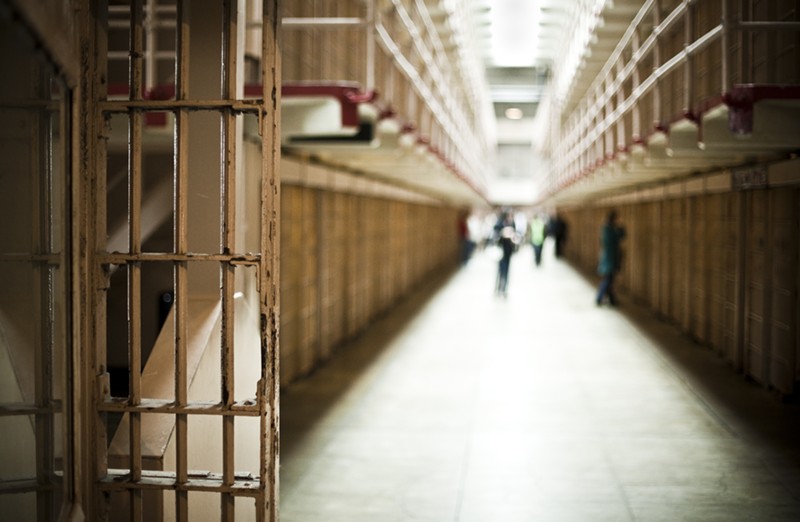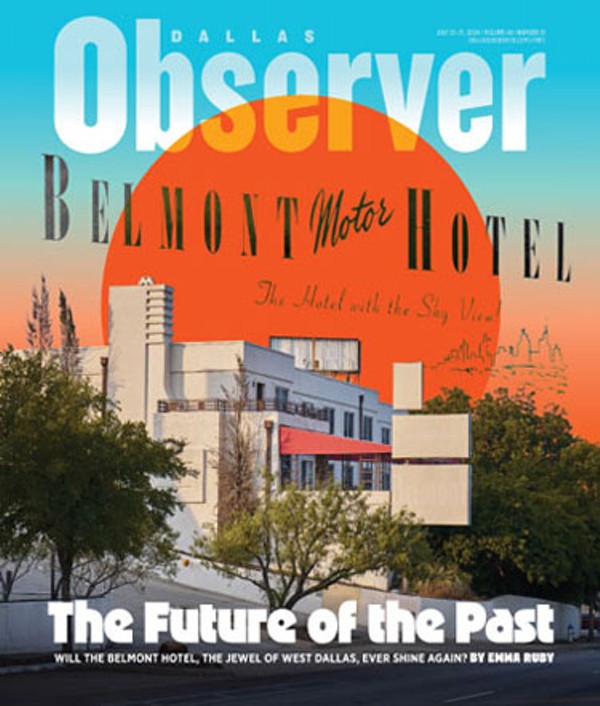“Individuals will still be held on the arrest charge/report, however, public intoxication charges will not be added to the docket or filed on the individual,” the memo said.
Dallas’ sobering center at the City Detention Center isn’t fully staffed. Until it is, the staff at the detention center will just hold drunk individuals for six to 12 hours and then release them. Before cutting them loose, staff or the detention center supervisor must determine that the individual can take care of themselves and doesn't present a danger to themselves or others.
If a drunk person is brought in with Class C warrants or other charges, those will still be processed. The public intoxication charge, however, won’t.
Someone claiming to work at the detention center sent an anonymous letter about the policy change to City Manager T.C. Broadnax and forwarded it to the Observer.
“I am contacting you to inform you about the violation of public trust, violation of state law and to inform you that the citizens of Dallas' 4th Amendment rights are being violated,” the letter said. “To keep a person in custody when you already have prior knowledge (before the person is booked in) that you are not going to charge the person is unlawful, unethical and immoral.”
The anonymous author claimed several people brought in for public intoxication have told staff, “If I am not being charged with a crime, then I want to leave and if you refuse to let me leave then you are kidnapping me.”
Gary Lindsey, assistant director of the marshal’s office, said the change is meant to free up staff and connect people with resources to help with substance abuse and other issues.
The detention center has housed public inebriates for years, Lindsey said. Someone brought in for public intoxication would be charged, sent before a magistrate judge and let go. Hopefully they would show up for court, but many wouldn't, Lindsey said.
“I think what we’ve been seeing when we ran through the numbers is that a number of these individuals were homeless or had other quality of life issues,” he said. “So, I think the city looked at the cost efficiency of charging these people, the time we spend in court and the no show rate.”
Lindsey said it all boiled down to efficiency, whether it made more sense to lock people up or to help them access services and programs for substance abuse or mental health issues.“We’re not dealing with the issue. Plus, we’re tying officers up on time.” – Gary Lindsey, City Marshal's Office
tweet this
When the Dallas Police Department picks up someone for public intoxication, they sometimes try to find another person who can take them in. The law allows officers to release them to a responsible adult, Lindsey said. “But if there’s nobody available, they’ve got to do something with those [people],” he said. “Historically, they brought them to the [City Detention Center] and put them there, and we ended up filing a charge.”
But charging them isn't always ideal, he said.
“You can take a college kid. Let’s say they came in for the Texas-OU weekend. They get arrested for public intoxication and now they’ve got an arrest record. Is that the best use of resources?” Lindsey said. “When you start looking at the social justice movement and restorative justice, does it make more sense to try to find them services or … does it make sense to try to tie them up in a criminal court on a Class C offense for public intoxication?”
Lindsey thinks the city is trying to take a softer stance on the problem. “Let’s not make this a criminal issue, but try to make this some kind of issue we can try to resolve and try to find you help if that’s what you need,” Lindsey said.
Still, the city has a limit to its tolerance. Authorities have decided to only let an individual come through the center twice in a calendar year. “If you’re not going to accept services and you’re not going to comply, then yes, we are going to take you before a judge, and you are going to get charged,” Lindsey explained.
“We’re not making any headway [charging people for public intoxication],” he said. “We’re not dealing with the issue. Plus, we’re tying officers up on time.”
He said they’re working with the North Texas Behavioral Health Authority to try to get people placed somewhere in community-based treatment programs for substance abuse or mental health treatment.
He added, “I think that a lot of the cities are looking around and saying ‘There’s got to be a better way to do these things rather than the revolving door on a lot of these quality of life issues.’”
But the anonymous staffer who wrote the letter wasn't so sure it would work out. “We’ve got some disgruntled employees that don’t like somebody coming into jail and not having a case filed on them," they claimed. "I think change sometimes is a little uncomfortable to people."












